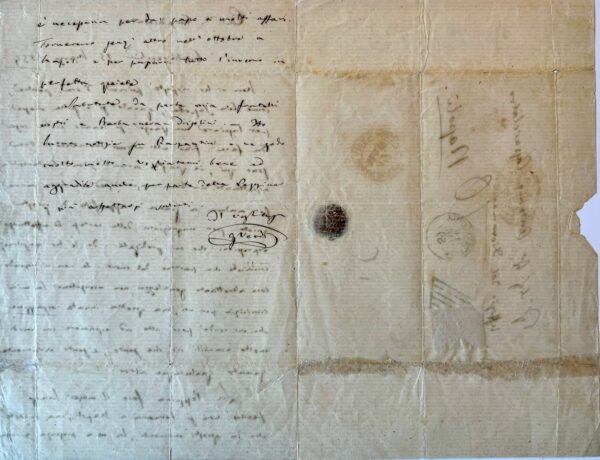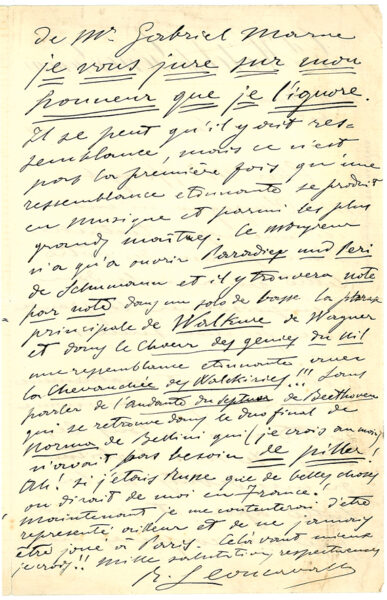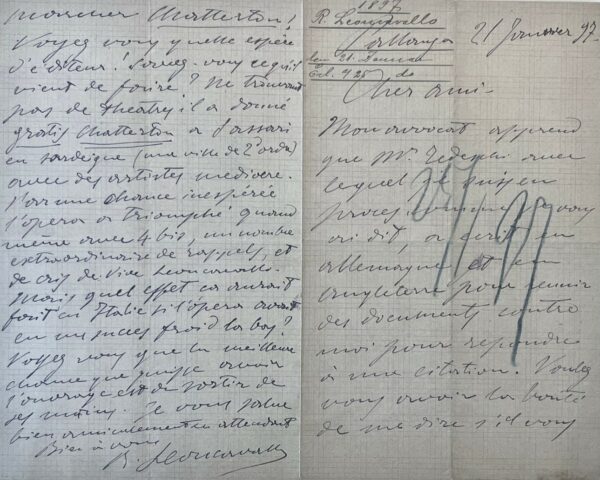LEONCAVALLO, RUGGERO. (1858-1919). Italian composer; his most enduring work is the one-act opera Pagliacci. ALS. (“R. Leoncavallo”). 3pp. Large 4to. Berlin, February 7, 1894. Written in Italian on highly decorative Berlin Central Hotel stationery; the last page of stationery is filled with printed advertisements for businesses in Berlin. To Mr. Bernard (?).
“The premiere of I Medici will take place on the 8th of this month since Sylvia is feeling better. So, I will think of getting two seats for you and in the loge for Mrs. Bernard. Now I must tell you something that will surprise you. Boch, the editor, received a letter from Eirich that tells him that the manager Borrice Bezenski, having received bad news from I Medici show in Rome, has decided that we will not take I Medici to the Vienna theater unless it is really a big success. So, the director of the Vienna theater treats me like a late comer. And one sees this fact abnormal that the theater has not hesitated to stage Fritz and Rantzau, hesitates to set up the work of the author of Pagliacci when their work was a veritable triumph in Milan, and I can assert that it was the same in Rome and for the premiere. But everyone knows that Mrs. Stehle fell from the elevator the day before the second show, that the theater remained closed for 8 days, to leave time to Mrs. Torresella to learn the part quickly, to give Tamagno the shows that the impresario had guaranteed him, and that naturally the execution of the work suffered from it. That the enemies of Sonzogno (political enemies and journalists) and the partisans of Ricordi had taken advantage of Stehle’s misfortune to be malevolent, that is understandable. But that Mr. Jahn, who is a first-class artist, and a master could think that he must think twice before showing a work like I Medici, hurts me. You can read this letter to Mr. Jahn or to Mr. Eirich and tell them that I am sure that for I Medici in Vienna, it will be like Pagliacci that this theater will show my work after it has been in Germany. How strange! When I think that the Viennese public loves me and is so good to me! Now it is I who asked Mr. Boch his word not to deal with anybody before seeing the show in Berlin. You will be seeing the show in Berlin. You will be there and will be able to judge if the success will be true and if the work deserves to be treated with such mistrust. Present my best regards to Mrs. Bernard and accept a strong handshake from your devoted friend…”

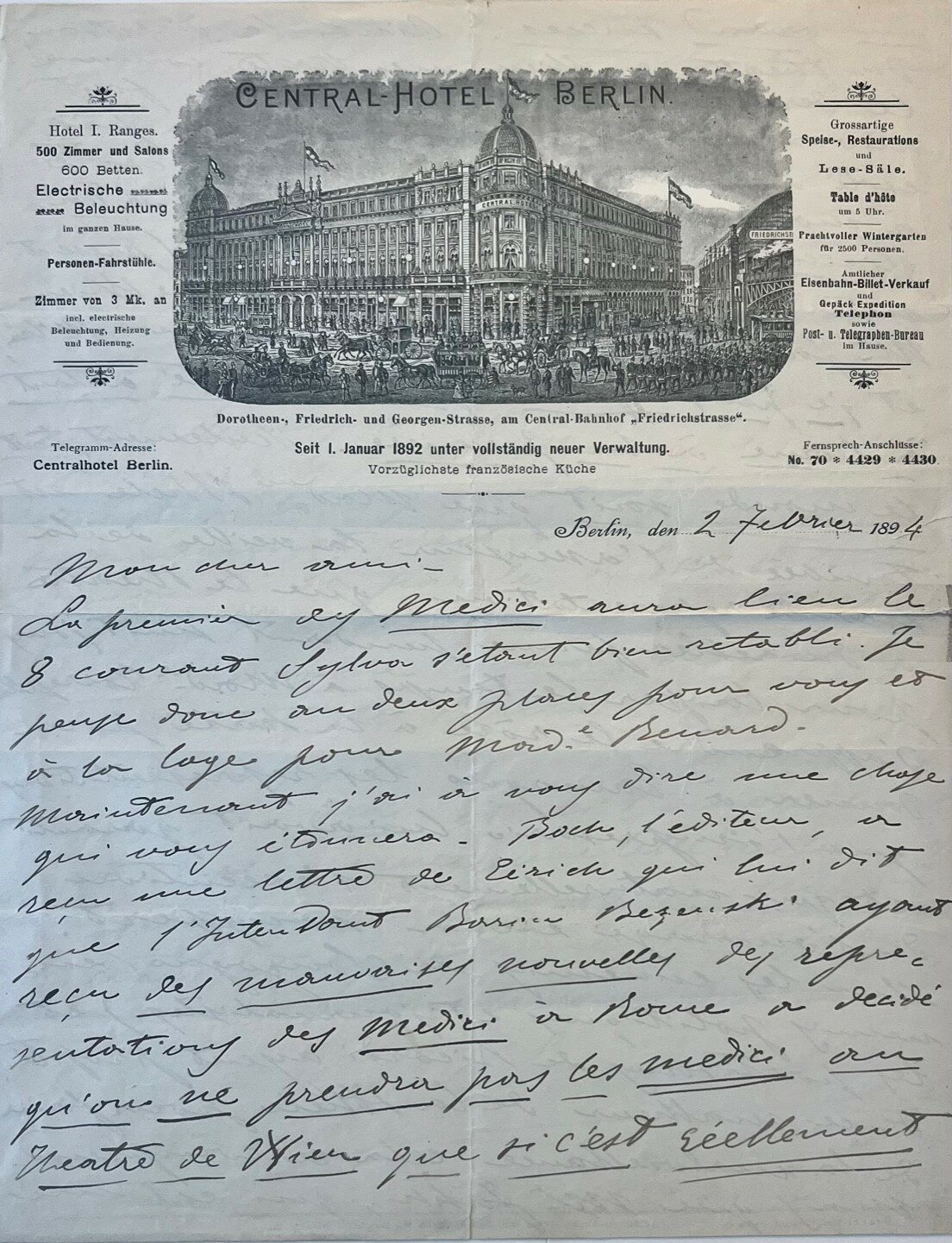
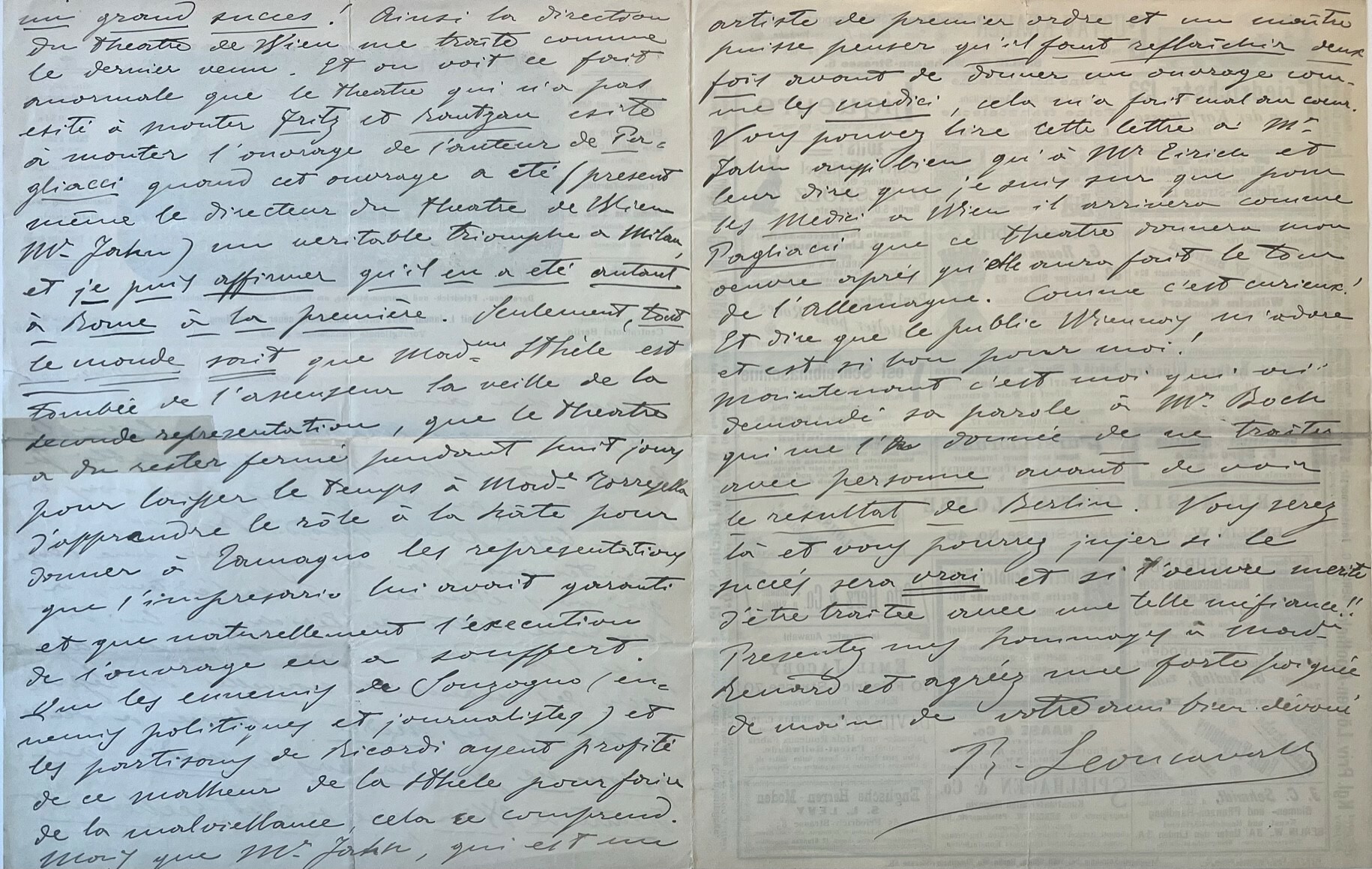
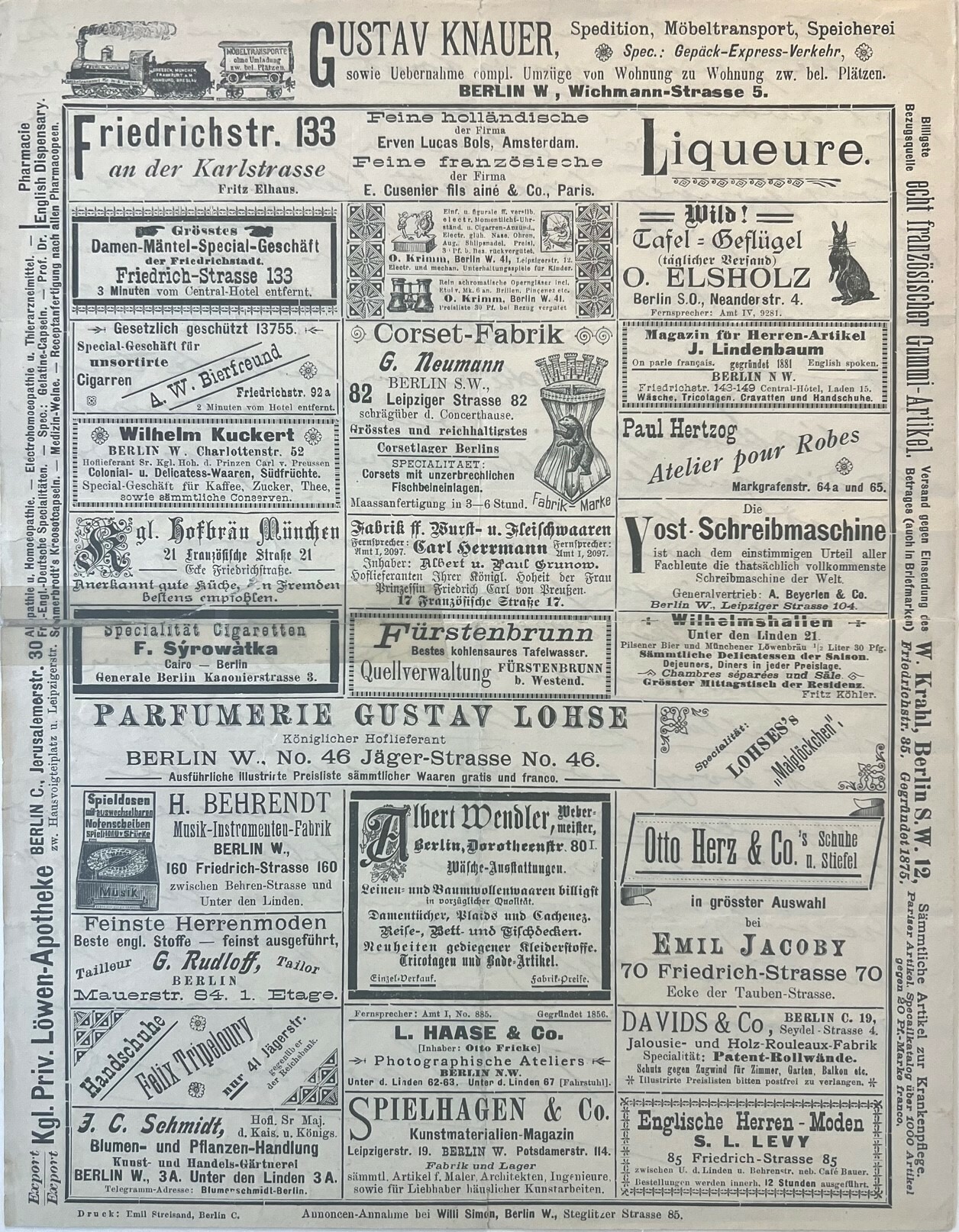
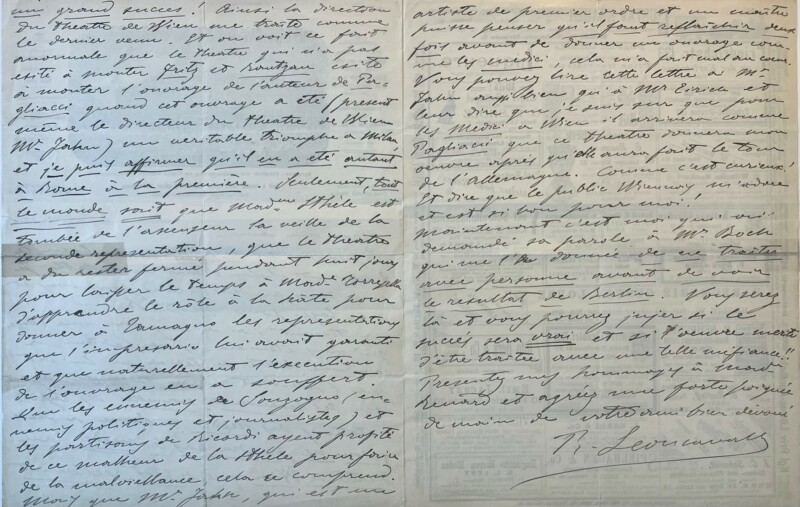
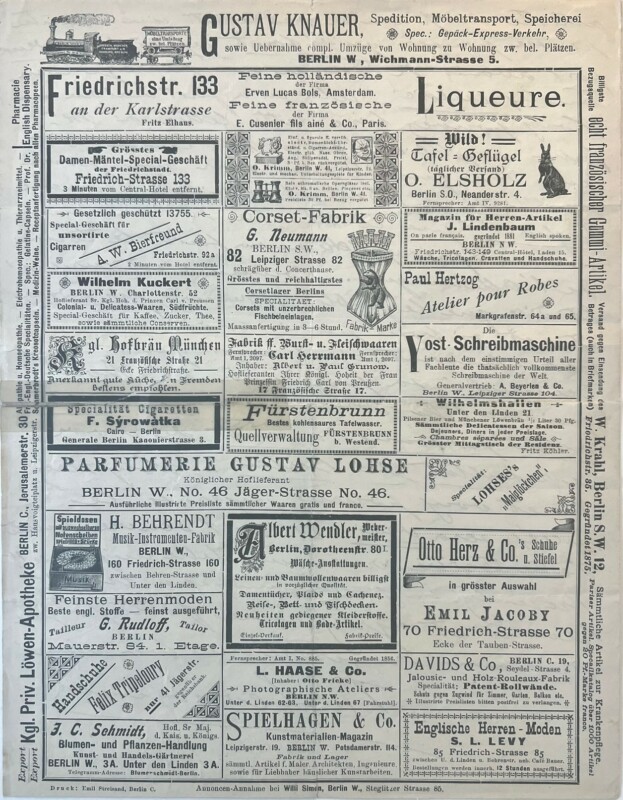
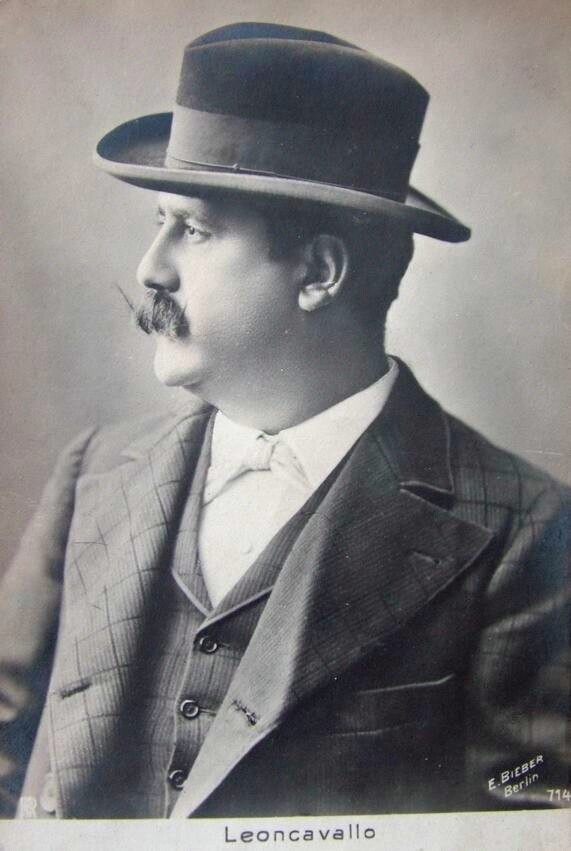
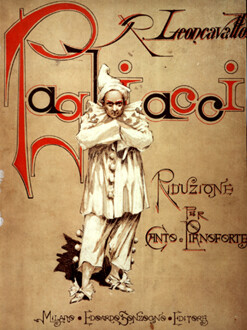 Leoncavallo’s next project was the opera Pagliacci which he deliberately took to Ricordi’s rival, publisher Edoardo Sonzogno (1836-1920). Sonzogno was “a passionate opera lover and bon vivant” who purchased the Italian rights to many French operas and became the manager of Rome’s Costanzi Theatre, (The Autumn of Italian Opera, Mallach). His company, Casa Musicale Sonzogno, searched for new composers, discovering such talent as Mascagni and Cilèa. “By the end of 1890, Sonzogno had on commission at least four works in progress. In addition to the operas by Cilèa and Giordano, they included two works by Mascagni, L’amico Fritz and I Rantzau [mentioned in our letter]. With his activities widely known in the small world of Italian opera, it was all but inevitable that Leoncavallo, his ambitions frustrated by Ricordi, would turn to Sonzogno with his proposal for Pagliacci. It was equally inevitable that Sonzogno would accept the proposal with alacrity,” (ibid.).
Leoncavallo’s next project was the opera Pagliacci which he deliberately took to Ricordi’s rival, publisher Edoardo Sonzogno (1836-1920). Sonzogno was “a passionate opera lover and bon vivant” who purchased the Italian rights to many French operas and became the manager of Rome’s Costanzi Theatre, (The Autumn of Italian Opera, Mallach). His company, Casa Musicale Sonzogno, searched for new composers, discovering such talent as Mascagni and Cilèa. “By the end of 1890, Sonzogno had on commission at least four works in progress. In addition to the operas by Cilèa and Giordano, they included two works by Mascagni, L’amico Fritz and I Rantzau [mentioned in our letter]. With his activities widely known in the small world of Italian opera, it was all but inevitable that Leoncavallo, his ambitions frustrated by Ricordi, would turn to Sonzogno with his proposal for Pagliacci. It was equally inevitable that Sonzogno would accept the proposal with alacrity,” (ibid.).